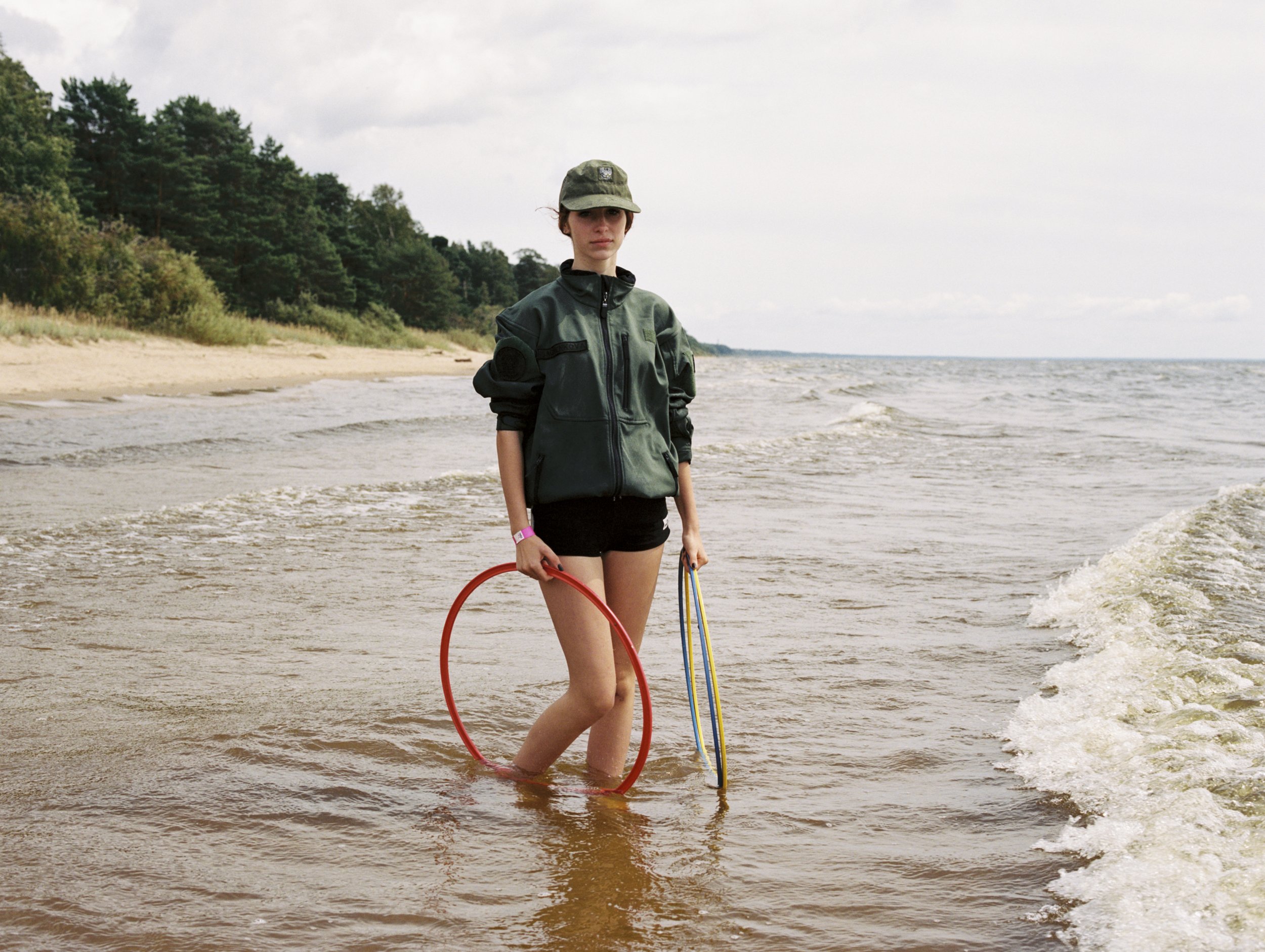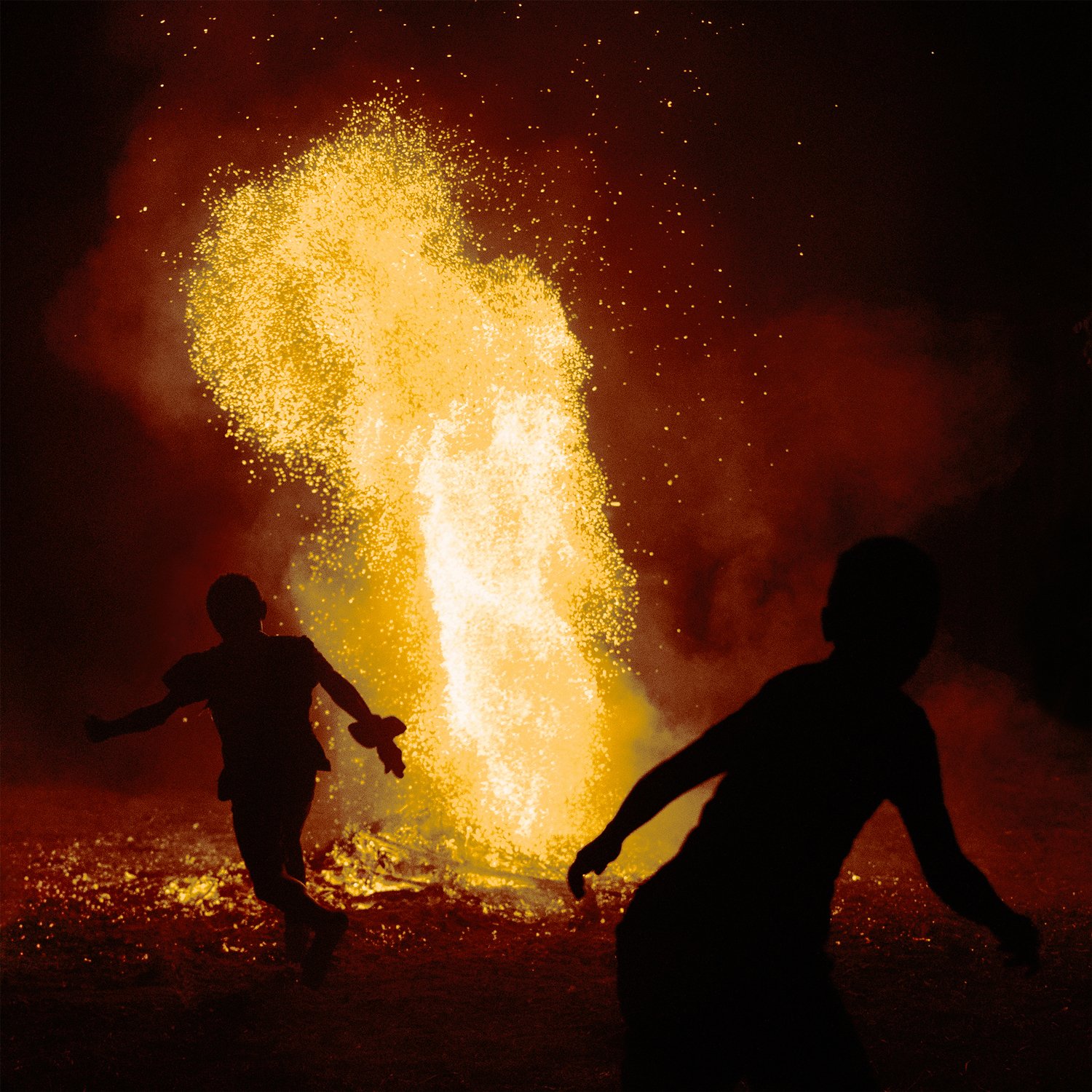Fencing Without Limits
In a quiet corner of North London, where tradition meets dedication, Salle Paul Fencing Club has been shaping champions and nurturing a love for the sport since the early 1930s. Stepping inside the club on a buzzing weeknight, the energy is palpable—fencers of all ages sparring across metallic pistes, blades clashing rhythmically in a blur of movement. At the centre of this hub is Pete Eames, the Club Secretary, who offered an insightful look into Salle Paul's unique philosophy, its deep history, and its inclusive approach to fencing.
Photography and words JC VeronaThis feature was created in collaboration with SIGMA, with all imagery captured using the new Sigma BF camera. Its precision and performance allowed us to document this story. We are grateful to SIGMA for their support in bringing this project to life.
Despite fencing’s reputation as an elite or aristocratic sport, what you find here is something very different. It’s not just for posh schools or the wealthy. “You walk in, and there’s a five-year-old sparring next to someone who’s been fencing for 50 years. Everyone fences everyone, no matter age, gender, or background.”
That openness is at the heart of Salle Paul’s ethos. The club was founded in 1931 by Leon Paul, a French fencing master who started by selling equipment out of a van in the 1920s. Nearly a century later, his legacy continues, not as a museum piece, but as a living, breathing club focused on inclusion, access, and serious training. “We welcome everyone,” Pete says. “You don’t need to come from a certain kind of world. You just need to want to fence. “We train everyone, from complete beginners to people who have fenced at the Olympics,” Pete explains. “We don’t turn anyone away. Our youngest member is five years old, and our oldest is 86.”
That inclusivity goes beyond age. “We’re also very fortunate at the club to be able to provide fencing to wheelchair users,” Pete adds. On the night of my visit, I saw teenagers duelling seasoned adults, women and men fencing side-by-side, all connected by a shared love of the sport.
The Salle Paul space itself is fully equipped with professional scoring screens, specialised flooring, and dedicated lighting, creating a competition-grade atmosphere that enhances both training and performance. It's a space that feels serious, yet remains welcoming to all levels.
The club's structure reflects this ethos of development. Training begins with the youngest group—the 5 to 7-year-olds, the Spartans—who use plastic swords and helmets in twice-weekly sessions. From there, they graduate to the Titans (ages 8 to 13), who wear full protective gear and use metal swords. “When they’re ready, usually from age 14, they move into the Open Session, where they train alongside adults,” Pete says.
What really sets Salle Paul apart is its coaching staff—all salaried, full-time professionals, a rarity in the fencing world. “Many clubs have part-time coaches, or coaches working multiple clubs to make a living,” Pete explains. “But thanks to the Leon Paul company, we can employ our coaches full time.”
And these aren’t just any coaches. “All our coaches have fenced internationally,” Pete shares proudly. “For example, Richard Kruse was once the number one foil fencer in the world. He’s fenced at four Olympics, won nine World Cups.” And came within a whisper of a medal in Rio, finishing fourth. He and his fellow coaches represent a global blend, hailing from the UK, Cuba, Ukraine, Romania, Italy, Wales, and Turkey, covering all three fencing disciplines: foil, épée, and sabre.
“All our coaches have fenced internationally. For example, Richard Kruse was once the number one foil fencer in the world. He’s fenced at four Olympics, won nine World Cups.”
Coach Richard Kruse wearing specific armour for coaching.
But Salle Paul is not just about elite training. The club is rooted in its community. Pete explains that they regularly participate in local events, such as arts, culture, and sports fairs. This outreach has brought in fencers from a range of backgrounds not traditionally associated with the sport. Some of these local talents now compete internationally, testament to the club's nurturing environment.
Of course, fencing still battles with certain misconceptions—notably, that it’s dangerous. Pete is quick to correct this. “Many studies have compared the risks across different sports, and fencing is often found to be one of the safest. If an injury does occur, it’s reported to the authorities so they can improve clothing and equipment.”
Funding for fencing in the UK remains a challenge. “Many fencers in the UK are completely self-funded,” Pete says. “However, organisations such as Sport England and UK Sport do support fencing. This enables British Fencing to focus on improving the system and structure to develop athletes and coaches for long-term Olympic success.” At Salle Paul, the club's strong relationship with Leon Paul continues to provide essential backing.
Still, fencing has yet to fully break into the mainstream. “British Fencing does have a planned and sustained programme of commercial marketing of the sport,” Pete acknowledges. “The difficulty fencing in the UK has is getting onto peak-time national TV—at the same level as sports like football, rugby, or tennis. It’s such a shame, because fencing is an inclusive sport—equally open to men and women, boys and girls, wheelchair users, of any age, ability, or background.”
As we wrap up, a fencer approaches Pete mid-conversation to ask for a spare pair of shoes. He chuckles, offers help, and seamlessly returns to our talk—a small moment that perfectly captures the friendly, hands-on energy at the heart of Salle Paul.
“Thank you again for your time and for all the work you’re doing for the sport,” I say.
“You’re welcome,” Pete replies. “And thank you for your interest.”
“Fencing is an inclusive sport—equally open to men and women, boys and girls, wheelchair users, of any age, ability, or background.”
Pete Eames, the Club Secretary
About Salle Paul
You can visit the club at Leon Paul Fencing Centre Unit 19 Garrick Industrial Estate, London NW9 6AQ from Monday to Friday. For more info about the club visit their website








































